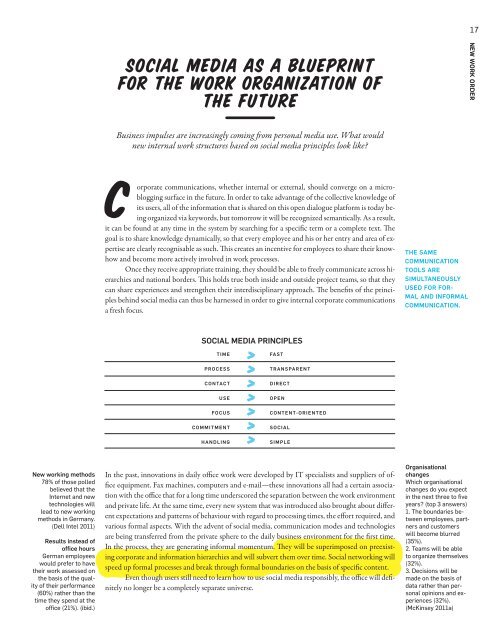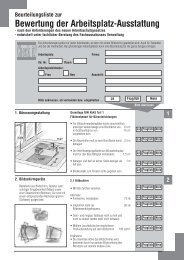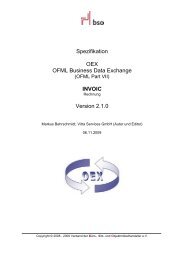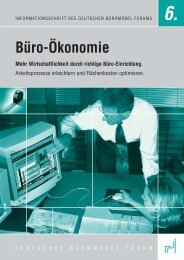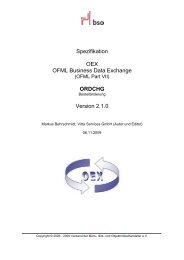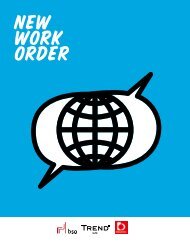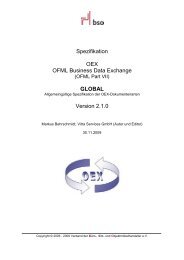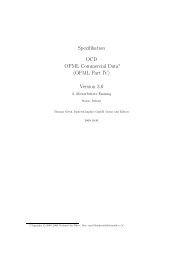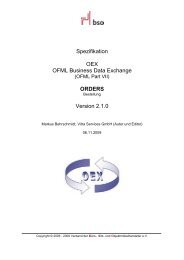New Work Order - Orgatec
New Work Order - Orgatec
New Work Order - Orgatec
- No tags were found...
You also want an ePaper? Increase the reach of your titles
YUMPU automatically turns print PDFs into web optimized ePapers that Google loves.
17Social media as a blueprintfor the work organization ofthe future<strong>New</strong> <strong>Work</strong> orderBusiness impulses are increasingly coming from personal media use. What wouldnew internal work structures based on social media principles look like?Corporate communications, whether internal or external, should converge on a microbloggingsurface in the future. In order to take advantage of the collective knowledge ofits users, all of the information that is shared on this open dialogue platform is today beingorganized via keywords, but tomorrow it will be recognized semantically. As a result,it can be found at any time in the system by searching for a specific term or a complete text. Thegoal is to share knowledge dynamically, so that every employee and his or her entry and area of expertiseare clearly recognisable as such. This creates an incentive for employees to share their knowhowand become more actively involved in work processes.Once they receive appropriate training, they should be able to freely communicate across hierarchiesand national borders. This holds true both inside and outside project teams, so that theycan share experiences and strengthen their interdisciplinary approach. The benefits of the principlesbehind social media can thus be harnessed in order to give internal corporate communicationsa fresh focus.The samecommunicationtools aresimultaneouslyused for formaland informalcommunication.SOCIAL MEDIA PRINCIPLESTimeProcessContactUseFocusCommitmentHandlingFastTransparentDirectOpenContent-orientedSocialSimple<strong>New</strong> working methods78% of those polledbelieved that theInternet and newtechnologies willlead to new workingmethods in germany.(Dell Intel 2011)Results instead ofoffice hoursGerman employeeswould prefer to havetheir work assessed onthe basis of the qualityof their performance(60%) rather than thetime they spend at theoffice (21%). (ibid.)In the past, innovations in daily office work were developed by IT specialists and suppliers of officeequipment. Fax machines, computers and e-mail—these innovations all had a certain associationwith the office that for a long time underscored the separation between the work environmentand private life. At the same time, every new system that was introduced also brought about differentexpectations and patterns of behaviour with regard to processing times, the effort required, andvarious formal aspects. With the advent of social media, communication modes and technologiesare being transferred from the private sphere to the daily business environment for the first time.In the process, they are generating informal momentum. They will be superimposed on preexistingcorporate and information hierarchies and will subvert them over time. Social networking willspeed up formal processes and break through formal boundaries on the basis of specific content.Even though users still need to learn how to use social media responsibly, the office will definitelyno longer be a completely separate universe.OrganisationalchangesWhich organisationalchanges do you expectin the next three to fiveyears? (top 3 answers)1. The boundaries betweenemployees, partnersand customerswill become blurred(35%).2. Teams will be ableto organize themselves(32%).3. Decisions will bemade on the basis ofdata rather than personalopinions and experiences(32%).(McKinsey 2011a)


